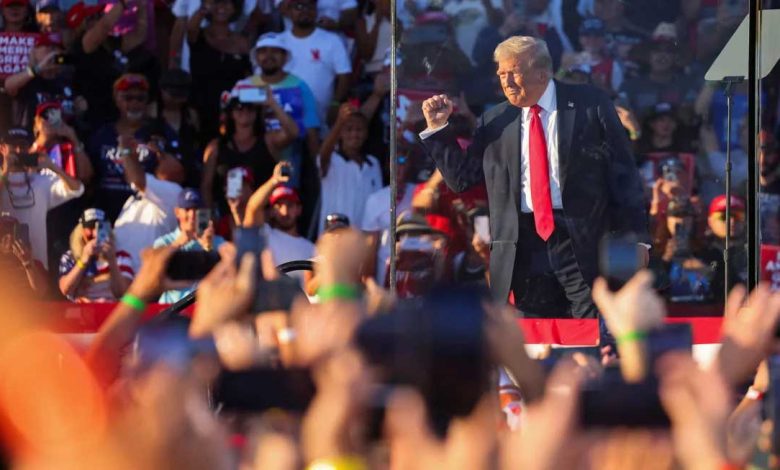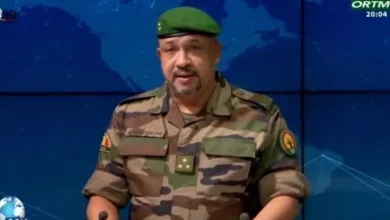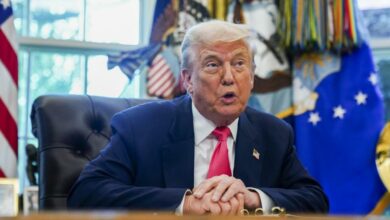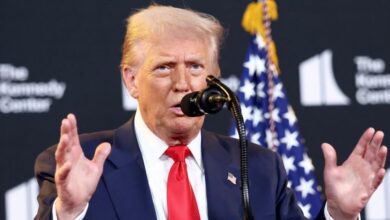Trump returns to epicenter for Madison Square Garden rally


Donald Trump is kicking off the final full week of the presidential race Sunday with a rally at Madison Square Garden, betting on his own showmanship as he seeks to fill the iconic venue and create a spectacle that will reach television and phone screens in all seven battleground states.
The former president is returning to his hometown of New York City – deep-blue turf that virtually no Republicans expect to win, but where signs of discontent and state and local Democratic leadership struggles could help endangered GOP incumbents hold House seats in the surrounding suburbs.
It’s the latest in a line of Trump visits to blue states that has also included a rally in California’s Coachella Valley this month, one on Long Island in the summer and a recent stop for an economic forum in Chicago.
At each stop, in dehumanizing terms, Trump is laying the blame for crime and growing numbers of migrants at the feet of his Democratic rival, Vice President Kamala Harris.
“I will rescue every town across America that has been invaded and conquered,” he said Thursday in Las Vegas.
The Madison Square Garden event follows a precedent set by campaigns past. The venue, including its earlier locations, boasts an extensive political history. It has hosted presidents such as Grover Cleveland, Herbert Hoover and Franklin D. Roosevelt, and has welcomed both Republican and Democratic national conventions – most recently the GOP confab in 2004. It was also famously the site of John F. Kennedy’s birthday celebration in 1962, when Marilyn Monroe performed her iconic serenade for the president.
Yet, Madison Square Garden’s history is not without controversy. It has played host to far more divisive events, including the notorious “Pro-American Rally” of 1939, a pro-Nazi gathering organized by the German American Bund and attended by thousands in the lead-up to World War II. Days later, a Communist Party rally filled the arena. In 1968, George Wallace, the onetime segregationist governor of Alabama, pushed a law-and-order message in a speech at the Garden days before the presidential election, where he won nearly 10 million votes and carried five states as a third-party candidate.
For Trump, Sunday’s event signifies more than just a campaign stop. It’s also an important moment for him personally. The former president has long voiced a desire to take the stage at the Midtown Manhattan landmark. His name will most likely appear on the same kind of marquee that has so often welcomed guests like Billy Joel, Elton John and other legendary entertainers.
New York remains a safely blue state, though Trump has privately and publicly said that he thinks he could win it, an idea those in his campaign have acknowledged is far from reality.
“We think there’s a chance of winning New York first time since, well, long time, many, many decades. And we think there’s a real chance with what’s going on, with the migrants taking over the city, taking over, the whole state, frankly,” he said on Fox News Radio. Ronald Reagan in 1984 was the last Republican presidential nominee to carry the Empire State.
It has also been more than two decades since a Republican won a statewide election in New York – the most recent being former Gov. George Pataki when he won a third term in 2002.




